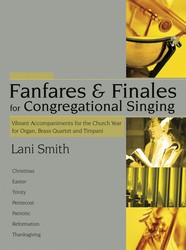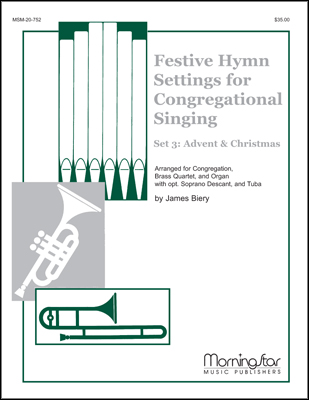- |
User Links
Wherefore Do the Nations Rage

Wherefore do the nations rage
Published in 11 hymnalsPrintable scores: PDF, MusicXMLAudio files: MIDI
Representative Text
1 Wherefore do the nations rage
and the people vainly dream
that in triumph they can wage
war against the King supreme?
Christ His Son a scoff they make,
and the rulers plotting, say:
"Their dominion let us break,
let us cast their yoke away."
2 But the Lord will scorn them all,
calm He sits enthroned on high;
soon His wrath will on them fall,
sore displeased He will reply:
"Yet according to My will
I have set My King to reign,
and on Zion's holy hill
My Anointed I maintain."
3 This His word shall be made known,
This Jehovah's firm decree:
Thou art My beloved Son,
yea I have begotten Thee.
All the earth at Thy request
I will give Thee for Thy own;
then Thy might shall be confessed
and Thy foes be overthrown."
4 Therefore, kings, be wise, give ear;
hearken, judges of the earth;
learn to serve the Lord with fear,
mingle trembling with your mirth.
Kiss the Son, lest o'er our way
His consuming wrath should break;
but supremely blest are they
Who in Christ their refuge take.
Source: Psalms and Hymns to the Living God #2
Text Information
| First Line: | Wherefore do the nations rage |
| Title: | Wherefore Do the Nations Rage |
| Meter: | 7.7.7.7 D |
| Language: | English |
| Copyright: | Public Domain |
- Year A, Epiphany Season, Transfiguration Sunday
Psalm 2, Metrical
English
- Bible Songs No. 4: a selection of psalms set to music, for use in sabbath schools, adult Bible classes, young people's societies, prayer meetings, evangelistic services, and family worship (4th ed.) #3
- Bible Songs: a Selection of Psalms Set to Music for Use in Sabbath Schools, Adult Bible Classes ... 7th ed. #d232
- CICW Psalter #2c
- Hymns of Faith, with Music #d95
- Psalms and Hymns to the Living God #2
- Psalter Hymnal (Blue) #3
- Psalter Hymnal (Gray) #2
- Psalter Hymnal (Red): doctrinal standards and liturgy of the Christian Reformed Church #4
- Select Hymns and Psalms: for the Church and Sunday School #96
- The Cyber Hymnal #7352 10 shown out of 11
Hebrew
Yiddish
Notes
A coronation song for God's anointed, proclaiming the new kings triumPh over his enemies.
Scripture References:
st. 1 = vv. 1-3
st. 2 = vv. 4-6
st. 3 = vv. 7-9
st. 4 = vv. 10-12
This messianic psalm about Yahweh's anointed king from David's line applies both to earthly kings and to David's greatest Son, who now reigns on David's throne (Luke 1:32; Acts 13:33). In the ancient world the power of a newly crowned king was usually challenged by subject monarchs and peoples; here, too, those who would resist the reign of God's anointed conspire to throw off the "chains" of God (v. 3) and of his appointed Son (w. 7, 12). The versification is from the 1912 Psalter, with alterations mainly in stanzas 3 and 4. It follows the psalm's thematic structure closely: first comes the almost incredulous "Why?"-What folly funds their dreams!-(st. 1); then we hear God's laughter and rebuke (st. 2); next, the Messiah confidently announces God's imperial proclamation enthroning him (st. 3); and that calls forth a warning to the rebels to submit with joy or taste the wrath of God and his Son (st. 4). The phrase "You are my Son" (st. 3) is quoted several times in the New Testament.
Liturgical Use
Advent, Easter, Ascension, and other celebrations of the enthronement of the LORD's anointed.
--Psalter Hymnal Handbook
Tune
MONSEY CHAPELDick L. Van Halsema (b. Kentwood, MI, 1922) attended Calvin College and Seminary in Grand Rapids, Michigan; Princeton Theological Seminary in New Jersey; and Union Theological Seminary in New York City. Ordained in 1949, he served pastorates in Christian Reformed congregations in Monsey, New York; M…
MENDELSSOHN (51171)
The tune is from the second chorus of Felix Mendelssohn's (PHH 279) Festgesang (Op. 68) for male voices and brass; it was first performed in 1840 at the Gutenberg Festival in Leipzig, a festival celebrating the anniversary of Gutenberg's invention of the printing press. Mendelssohn's tune is similar…
[Wherefore do the nations rage]


 My Starred Hymns
My Starred Hymns







